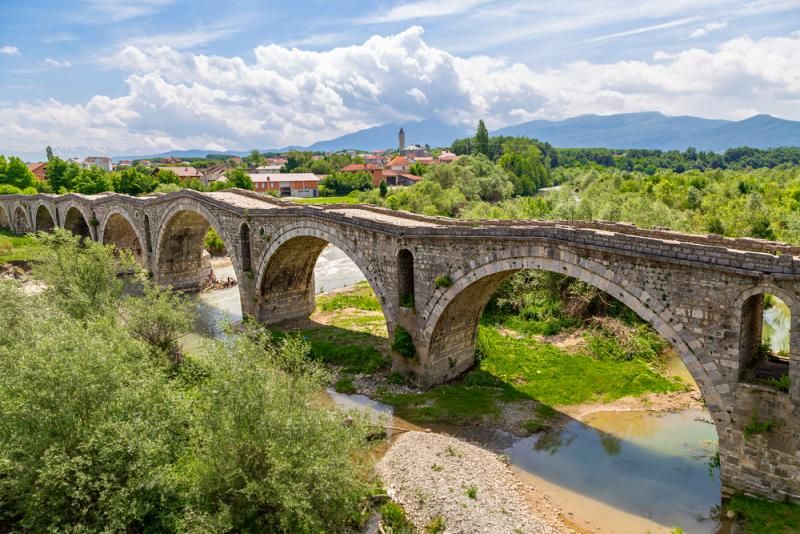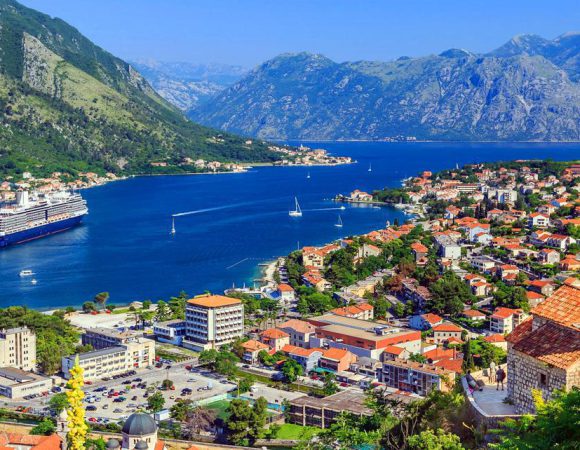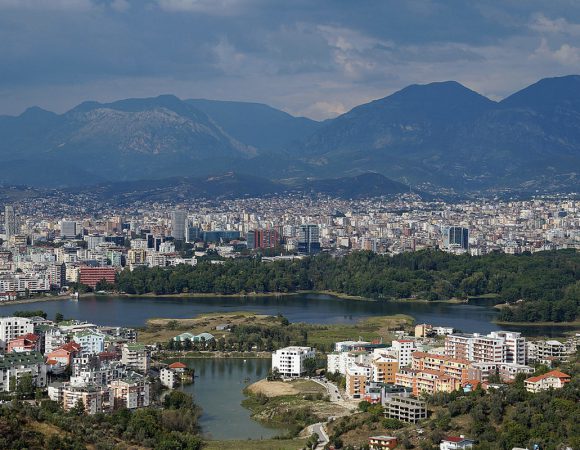
Kosovo
Having been occupied for many years, Kosovo declared its independence in 2008. Spreading over an area of 10,877 square kilometers, this Balkan country has a large Muslim population as it has been under the rule of the Ottoman Empire for many years.
The Serbian Orthodox Church , which is on the UNESCO World Heritage Protection List , is also located on the territory of Kosovo and attracts the attention of tourists from different geographies of the world. Among the touristic values of the country are traditional stone houses called kullas .
Capital, Cities and Regions of Kosovo
Kosovo is not an administratively monolithic country. There are 3 different structures belonging to the Republic of Kosovo, which declared its independence unilaterally in 2008, the structure accepted by the NATO administration in the region (UNMIK), and the Republic of Serbia, which still claims rights over Kosovo.
Where is Kosovo?
Located in the southeast of Europe and in the very center of the Balkans, Kosovo declared its independence in 2008 after the great war with Serbia. The country borders the states of Serbia, Montenegro, the Republic of Macedonia and Albania.
When to go to Kosovo?
A temperate continental climate prevails in Kosovo . The ideal time to go to the country, where winters are cold and summers are hot, is between May and September.
Kosovo Culture
When you go to Kosovo and try to talk about political issues , you will find that the tension rises suddenly . Of course, the choice is up to you, but keep this information in the back of your mind. The people of the country with a large Muslim population are generally hospitable and proud of their culture. Respect for the elderly is very important in Kosovo.
At the same time , almost 70 percent of the country with the highest youth population in Europe is under the age of 35. Photographing military installations in Kosovo is not welcome. Likewise, when you want to take pictures of houses, you are likely to get a reaction.
Kosovo Cuisine
In Kosovo, where Serbia, Albania, Turkey and Greek cuisine can be seen, the best restaurants you will encounter are usually in the villages near the big cities. Trout, sea bass and salmon are very common and popular in Kosovo cuisine, where meat dishes and seafood are predominant. In Kosovo, which can be said to be cheaper than many European countries, you will encounter many types of pastries . At the same time, in the country where you will encounter flavors unique to Turkish cuisine such as buttermilk and leaf wrap, the pastry, which they call fli and resembles a share, is available in almost every restaurant.
Cucumbers, green tomatoes and peppers are found in every salad in the country, where mostly home-cooked meals are predominant. Be sure to taste traditional delicacies such as skewered meat they call raznjici and a charcoal roasted meat dish called answercici and flavored with garlic and spices .
Among the main local drinks of the country are plum brandy, which they call slivovica, and vranac wine, mostly made from grapes grown in Pristina . In addition, Turkish coffee, boza and rakija, which resembles raki, are also widely consumed in the country.
In the country where the tip rate is around 10 percent , the minimum alcohol consumption age is 18.
Souvenirs to Buy from Kosovo
Euro is used in Kosovo. The cities that offer the most shopping options in Kosovo are Pristina, Ipek and Gjakova . One of the gifts you can buy from Kosovo, where handwork is quite common, is metal work that you will come across a lot. You will find very special alternatives made of silver, copper and brass in the country where wire processing is done a lot. Wood carvings and musical instruments are among the popular gifts to receive from Kosovo . In addition, embroidery and knitting works are among the local products of the country.
Kosovo’s Festivals
Many cultural and art festivals are held in Kosovo . The first of these festivals, which generally aims to support Balkan artists and develop Balkan culture and relations, is the Youth Festival organized by International Balkan Associations in Pristina . Folk dances, local music and traditional drama plays are performed within the scope of the festival, which brings together many countries from the Balkan lands.
Many film festivals are also held in the country. The largest of these is Dokufest. Open-air cinema screenings, concerts and exhibitions are also organized as part of the documentary festival Dokufest. The festival colors the streets of the capital in August every year. The Kosovo International Film Festival, on the other hand, brings many domestic and foreign films to the audience in January every year . The Animation Film Festival held in Peja every August is also an opportunity for young talents.
Another culture and art festival held in the country is the Awakening with Art Festival , which brings together Balkan painters . In addition to this festival, which is held every year in May, KosovaFest, the country’s largest music festival , is one of the most colorful festivals of Fush Kusov .
Holidays / Holidays / Important Days in Kosovo
The dates of Muslim holidays in Kosovo vary according to the movements of the moon.
· New Year (1 January),
Orthodox Christmas Day (January 7),
Independence Day (February 17),
Monday Easter (last Monday in March),
Constitution Day (April 9)
· Labor Day (May 1),
Orthodox Monday Easter (May 2)
Europe Day (9 May)
· Feast of Ramadan,
· Feast of Sacrifice,
Christmas Day (25 December)
Climate and Weather in Kosovo
In Kosovo , which has a humid continental climate , besides the Mediterranean climate , the effects of the oceanic climate are also seen . In the country, where the northeast is mostly affected by the continental climate, winters are snowy and cold. Summers are quite hot . While the annual average temperature values are around 9.5 in winter, it is around 19.2 in summer. In the country where the coldest month is January, temperatures drop below 0 during this period. Prizren and Istok, on the other hand, have a warmer winter than other cities.
A Brief History of Kosovo
Having hosted many civilizations such as Huns, Avars, Bulgars, Pechenegs and Uz throughout history, for a long or short time, Kosovo included the ‘Dardania’ region where Dardans lived during the Roman Empire. Kosovo, which formed a union with Albania and Montenegro against the Ottomans in 1444, remained under Ottoman rule for many years. The country, which joined the territory of the Ottoman Empire in 1389, was Ottoman territory until it was captured by Serbia in the 1912 First Balkan War. Kosovo , which became a province of Yugoslavia during World War II, could not regain its independence due to Serbian pressure and military interventions in the disintegration process of Yugoslavia, which started to disintegrate after the collapse of the Soviet Union.Among the states that opposed the independence of Kosovo, which the US, NATO and EU agreed to recognize its independence, were Russia, Greece, Greek Cyprus, Serbia, Spain and Azerbaijan. The country, which declared its independence only on February 17, 2008, is not only a very young country, but also not very rich because it has survived many political struggles.
Kosovo Economy
Kosovo is the country with the highest unemployment in Europe . In the country where the unemployment rate is about 40 percent, the country has opened itself to European and American investors to overcome this problem. Although it has achieved a steady growth in the last ten years, there are fundamental problems in Kosovo such as infrastructure inadequacies and the problem of sustainability of energy resources. The country, which operates in sectors such as metalworking, leather and woodworking, and simple machine production, became a member of the International Monetary Fund (IMF) and the World Bank in 2009.
Languages Spoken in Kosovo
The official languages of the Republic of Kosovo are Albanian and Serbian. In addition , Turkish, Bosnian and Romani are also spoken within the borders of the country . In addition, these languages are also officially recognized. Turkish is also officially accepted by the municipalities of Prizren, Mamusha, Pristina, Mitrovica, Vıçıtırın and Gilan today . In addition, a language between Bosnian and Macedonian is spoken in the Gora region of the country.






